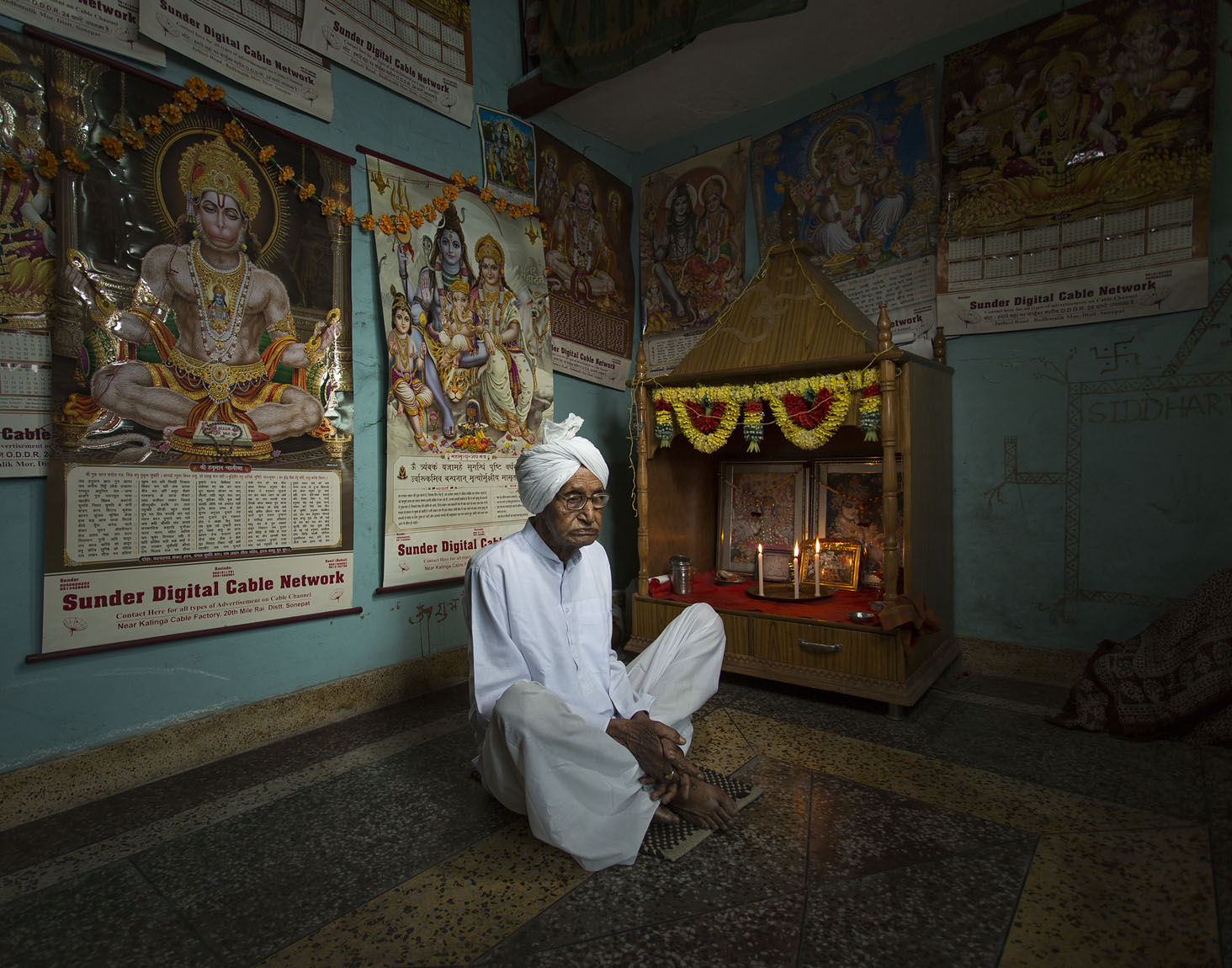My name is Charin Singh and I was born in the town of Nangal Thakran, Delhi in 1918. I had no interest in going to school, so I got involved in the family farming business. I also enjoyed playing the drums as a youth.
When I reached my teens, I often asked my friends in the neighborhood what they wanted to do with their lives in the future. Given that I had missed so much school, certain jobs weren't attainable, and my family farm wasn't making much money. We decided joining the Army would earn us a decent income and give us purpose. My cousin took me to Bareilly, and I joined the Army on January 10, 1941.
India was under the British rule at the time. I was in a British Army camp in Bareilly for six months. There we got in optimal condition and learned how to operate weapons and machinery. Upon graduating from basic training, my company was deployed to Singapore to take part in combat.
At the time, the British had a stronghold in Singapore. After Pearl Harbour, the conflict in the South-East Asian theatre of war had ratcheted up. Japan was trying to take control of Singapore and the surrounding areas to grab a piece of the natural resources in the area, including rubber.
During my time in Singapore, I was a truck driver. I drove for the Army, transporting supplies like food and weapons from base to base.
Along with my time in Singapore, I was also involved in combat in Sumatra for eight months. I was a gunman for my battalion. We were in combat with the Japanese and their tactical acumen was impressive. Their soldiers would go into the mountains or other high areas and pick us off. We couldn't see them, but they saw us. They were so effective with that technique that they could take on 10-15 of us by themselves.
One of my friends from my home village was also in my battalion in Sumatra. He was killed by the Japanese. The pain from his death was one of the the most memorable moments of my combat experience.
I don't quite remember when, but I was arrested by the Japanese soldiers, and they sailed back me to Japan on a ship. It took them 22 days to transport me. I spent seven long years as a prisoner of war. I don't remember much about my prison experience in my advanced age, but it was inhumane. They treated us terribly. I'm sure once they surrendered in 1945 they were even more upset and took it out on us.
At one point, around 1948, the Japanese started making a nursing space in the jail. The area was unsecured, and I took advantage of that. I fled the jail from that room, and I traversed the forests to freedom. I remember eating berries from trees just to survive in the harsh Japanese wilderness. I swam and crawled through many waters, which were sometimes all the way up to my neck. It was a long journey with numerous obstacles, but I was determined to reach home.
Once I reached civilization, I was able to board a ship back home. It took me three months to get back to India, but those months paled in comparison to the seven years of captivity.
When I reached my home village in 1949, everyone was shocked. My fellow villagers thought I was dead. By that time the war was over, and I hadn't yet come home, so I understand why they assumed that. Everyone in my village and even nearby locations came to visit me. It was a relieving time, until I learned that my first wife was so depressed by my presumed death that she died of shock. I was devastated to hear that.
I got married to my second wife, and rejoined the agricultural business at my family farm. I've been retired for about 20 years. These days, I spend a lot of time resting at home. My old age has kept me from being as active as I once was, and I don't have a great memory, but I'm still happy to be alive.
